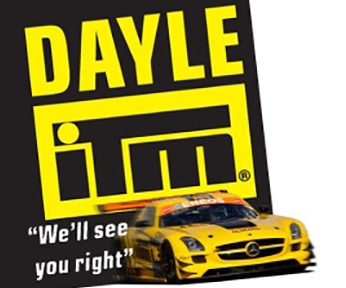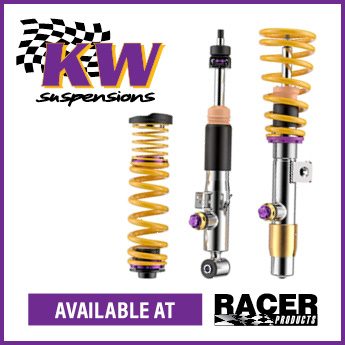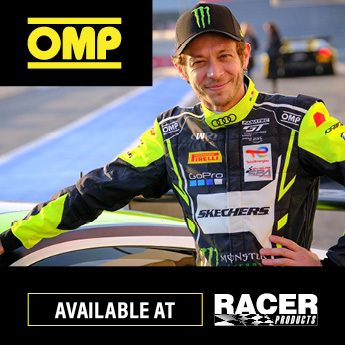Organisers of the New Zealand Sports Car Racing Series believe its unobtrusive, modest racing class offers a perfect platform for aspiring kiwi drivers to make the jump from karting to wings and slicks before a further leap into the realm of Formula Ford or the Toyota Racing Series.
The NZ Sports Car Racing Series is an independent championship run over six to eight rounds and contained within the North Island.
The concept behind the series is to offer kiwi racers a class for home built and factory sports cars to race against one another in a friendly, yet competitive, series.
The series has often run in conjunction with the NZ Formula Libre class, which acts as an independent series for obsolete open-wheel machinery.
Velocity News caught up with Richard Kelly, Chairperson of the NZ Sports Car Racing Inc, to discuss the series and its intentions moving forward as it looks to break out into the spotlight on the kiwi motorsport circus.
“For the purposes of our series, a sports racing car is a two-seat, open-top car, such as a Lotus 7, which is where I started through to factory Le Mans Prototype cars such as Radicals and the Juno.
“The cars reflect a diverse range of thinking that frequently results in a similar performance.
“The class enjoys great camaraderie with mutual support to help overcome any unforeseen challenges.
“As with many successful formulae, the rules and regulations of the competition are managed by the club whose members are the competitors.”

Three classes make up the series: Clubman is for road-legal cars on road tires, ProSport for up to two-litre naturally aspirated, open-topped cars, and SuperSports which runs as an open class for cars that are in the spirit of sports car racing but don’t fit the other classes because of larger engine capacity or design type.
Many of the SuperSport cars are capable of open-wheeler lap times, and their kiwi ingenuity-inspired modifications make them an arresting sight out on track.
Kelly added the economic benefit of Sports Car racing makes the series a winsome investment, a characteristic several New Zealand motorsport classes are aiming to emulate as the sport begins to ride out the financial aftershocks of the coronavirus pandemic.
“Sports cars are the best bang for buck race cars there are and offer the chance to run at V8 Supercar and TRS times for less than many saloon car racers spend on their engine alone.
“The relatively low-cost vs high performance offers drivers moving from karts, for example, and a chance to experience proper wings and slicks racing.”

Kelly also mooted of a future three-hour endurance series that will include both sports and saloon cars.
“The series [runs] all sprint races, but we are working with event organisers to run a new three-hour endurance series that will include sports and saloon cars.
“Sports cars are renowned for their success in endurance racing, and I am really looking forward to developing this opportunity.
“In the last few years, we have seen Kiwi’s competing and winning at the top level of sports car racing, the World Endurance Series. The NZSCR Series is recognised as a great feeder and development path for drivers who want to follow the sports car route to the top of motorsport or for those who just enjoy a weekend’s great racing with some social activity.”
With an affordable platform and a competitive class of racing, Kelly insists the series can only grow on the success it has had over the last few seasons.
“More than forty sports cars are sitting around in sheds that we would love to see on track with us. There’s a huge number of the classic Mallock U2 front-engine cars, at least ten Radicals and fourteen Juno sports cars in NZ just as examples. Add in the Saker Sprint, Beattie/ Redline’s, Lotus 211’s and of course all the various Lotus 7 replicas out there, and there is a sports car to match the budget of anyone that wants to go racing.
“We are seeing new drivers and new cars entering the series every year. Grant Dalton, the head of Emirates Team New Zealand, has recently joined us in a Radical SR8, and there are at least four new drivers who have purchased cars and intend to race in the series next season.
“Our series favours consistent performance to become the winner, so a driver in a cost-effective car that consistently delivers good results may win the Championship. I’ve never been in the fastest car on the grid but have won the ProSport class four times and the Overall championship twice.”

While the series currently revolves around the four permanent North Island circuits, the series is focused on a nationwide expansion with plans to stage two South Island rounds afoot for future seasons.
“We hope to expand the series from being North Island only, which is how we run it at present, to include two South Island rounds. There are a good number of eligible cars in the South Island, and we are keen to see them on track with us.
“We are in negotiations with MotorSport New Zealand to become a recognised championship to further support our series being a pathway class for drivers.
“We are also discussing formalising Formula Libre being a class in our series. Formula Libre cars have always been welcome to enter any of our rounds, and we want to give all those drivers somewhere to race. At a race meeting our joined class is often the fastest and most exciting to watch grid, with close racing right throughout the field. Our best grid was over 30 cars last season.
“With the current Covid-19 pandemic bringing a premature end to the 2019/20 season, our focus is fully on promoting our class for the coming season. The cost-effectiveness and high-performance of sports cars place us in a great position when motorsport restarts.”

Images: NZ Sports Car Racing

















